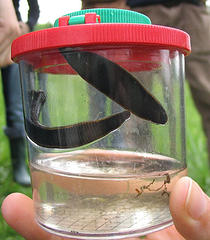What Not to Do When I Ask You to Consider Advertising on Our Community
Role playing time! I manage a good sized community around a particular niche. I am looking for advertisers. So, I identify some online stores that sell products to the people who comprise my community’s audience. The online store that you work for is one of those I find and I contact you.
I e-mail you, I introduce myself and share some information about my site. I think we could be a good fit for you. I offer to send you our media kit and rate card and to answer any questions that you may have. Do you:
a. Thank me for my interest and ask for more information.
b. Thank me for my interest, but decline.
c. Decide not to respond.
d. (This is the good one). Register on my community and post links to your site, acting like you are unaffiliated with it.
So, I e-mailed this store and got a reply back from someone there. They said they probably weren’t interested, but encouraged me to send along the information anyway. I did so. And that was it.
You can imagine my surprise when I visit my community shortly there after and see a new member with that store’s link in his or her signature, having made two posts mentioning the store. The posts and the signature both give the impression that the poster is unaffiliated with it. They remark that the they simply shop at this store.
Want to take a crack at the confirmed e-mail address associated with the account? Why, yes, it was the exactly same e-mail address for that person I spoke with that worked at the company! You nailed it!
Ridiculous. And a quick way to alienate potential customers. Plus, as it stands right now, I wouldn’t want them to advertise on my community, anyway. I wouldn’t want to take their money. They engaged in unethical marketing right in front of my eyes and tried to take advantage of my community. Done.

